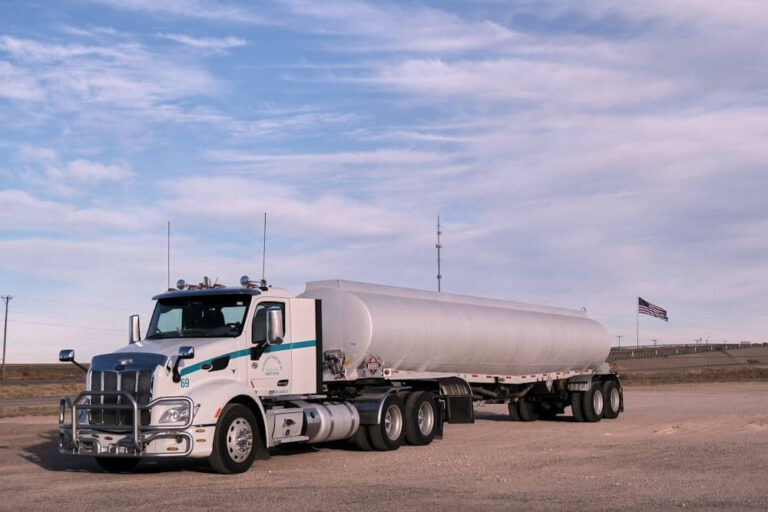Finding the right bulk fuel supplier is crucial for keeping your fleet running efficiently and cost-effectively. With fluctuating fuel prices, varying service levels, and logistical challenges, choosing the best supplier can make a significant difference in your operations. The right partner ensures reliable fuel delivery, competitive pricing, and added benefits like fuel management solutions and emergency support. But with so many options available, how do you determine which supplier aligns best with your fleet’s needs?
From evaluating pricing structures to assessing service reliability, selecting a bulk fuel supplier requires careful consideration. Whether you manage a small delivery fleet or a large trucking operation, making an informed decision can lead to long-term savings and improved operational efficiency. Here are six key ways to find the right bulk fuel supplier for your fleet operations.
Assess Reliability and Delivery Capabilities
A bulk fuel supplier must provide consistent and timely deliveries to prevent operational disruptions. Assess their track record for reliability, especially during peak seasons or emergencies. Do they have a robust supply chain and backup plans in case of fuel shortages? Consider suppliers with multiple storage locations and a well-maintained fleet of delivery trucks.
Evaluate their delivery scheduling options—can they accommodate your fleet’s fueling patterns? Unexpected delays can lead to downtime, so ensure they have 24/7 support and emergency fuel services. A supplier with real-time tracking and automated refueling schedules can improve efficiency and eliminate the risk of running low on fuel unexpectedly.
Check Fuel Quality and Compliance Standards
Fuel quality directly impacts vehicle performance, fuel efficiency, and engine longevity. Low-quality or contaminated fuel can cause engine issues, increase maintenance costs, and lead to regulatory non-compliance. Ensure the supplier follows industry standards such as ASTM specifications and government regulations. Do they conduct regular fuel testing? Ask about their fuel storage and handling practices to prevent contamination.
A supplier that provides fuel additives or cleaner-burning options can further enhance your fleet’s efficiency. For instance, you can engage reliable bulk DEF supply & delivery to ensure compliance with emissions regulations and maintain the performance of your diesel fleet. Choosing a supplier that prioritizes quality minimizes the risk of costly mechanical failures.
Evaluate Pricing and Contract Terms
Fuel prices fluctuate, making it essential to understand a supplier’s pricing structure. Do they offer fixed, floating, or tiered pricing? Fixed rates can provide cost stability, while floating rates adjust to market changes. Scrutinize contract terms for hidden fees, volume commitments, and penalties. A transparent supplier will clearly outline fuel surcharges, delivery costs, and potential discounts for bulk purchases.
Ask also about loyalty programs or rebates that may help lower costs over time. Comparing multiple suppliers can help you negotiate better terms and avoid overpaying for fuel. A supplier that offers flexible contracts ensures you can adjust fuel agreements based on business growth or market conditions.
Consider Value-Added Services and Technology Integration
Beyond fuel delivery, top suppliers offer additional services that improve operational efficiency. Look for providers with fuel management solutions, tracking tools, and reporting systems. Can they integrate with your fleet management software? Automated tracking allows for real-time fuel usage monitoring and helps identify inefficiencies. Some suppliers offer on-site fueling, reducing downtime by eliminating trips to fuel stations.
Fuel card programs can also streamline expense tracking and control unauthorized purchases. A supplier with advanced technology and comprehensive service offerings can help optimize fuel consumption, reduce waste, and enhance overall fleet productivity. Investing in a supplier with these capabilities can lead to long-term cost savings.
Analyze Customer Support and Responsiveness
A fuel supplier’s responsiveness is crucial, especially in emergencies or during supply chain disruptions. Assess their customer service quality by reviewing testimonials, ratings, and response times. Do they have dedicated account managers? A supplier that provides personalized service and quick resolutions can significantly benefit your fleet operations. Test their responsiveness by inquiring about fuel order modifications or emergency fuel deliveries.
Reliable suppliers maintain open communication channels through phone, email, and online portals. Their ability to provide proactive support and adapt to your fleet’s evolving needs is essential. A supplier that prioritizes customer service fosters a strong partnership that enhances your long-term operational success.
Review Their Industry Experience and Reputation
Experience in the fuel industry matters when selecting a bulk supplier. A well-established supplier with years of service is more likely to have strong logistical capabilities, regulatory knowledge, and a deep understanding of fleet operations. Research their reputation by checking online reviews, client testimonials, and industry certifications.
Do they supply businesses similar to yours? Speak with other fleet managers to gauge their satisfaction with the supplier’s service quality and reliability. Avoid suppliers with a history of inconsistent deliveries, hidden fees, or poor customer service. A reputable supplier should also demonstrate a commitment to sustainability, offering cleaner fuel options and eco-friendly initiatives.
Choosing the right bulk fuel supplier is essential for maintaining efficiency, reducing costs, and ensuring uninterrupted fleet operations. By assessing reliability, pricing, fuel quality, value-added services, customer support, and industry reputation, you can make an informed decision that benefits your business in the long run. A dependable supplier not only provides fuel but also helps streamline operations through advanced technology and flexible service options. Take the time to evaluate multiple suppliers and negotiate terms that align with your fleet’s needs. Investing in a trustworthy fuel partner ensures smoother operations, better cost management, and a competitive edge in the industry.


